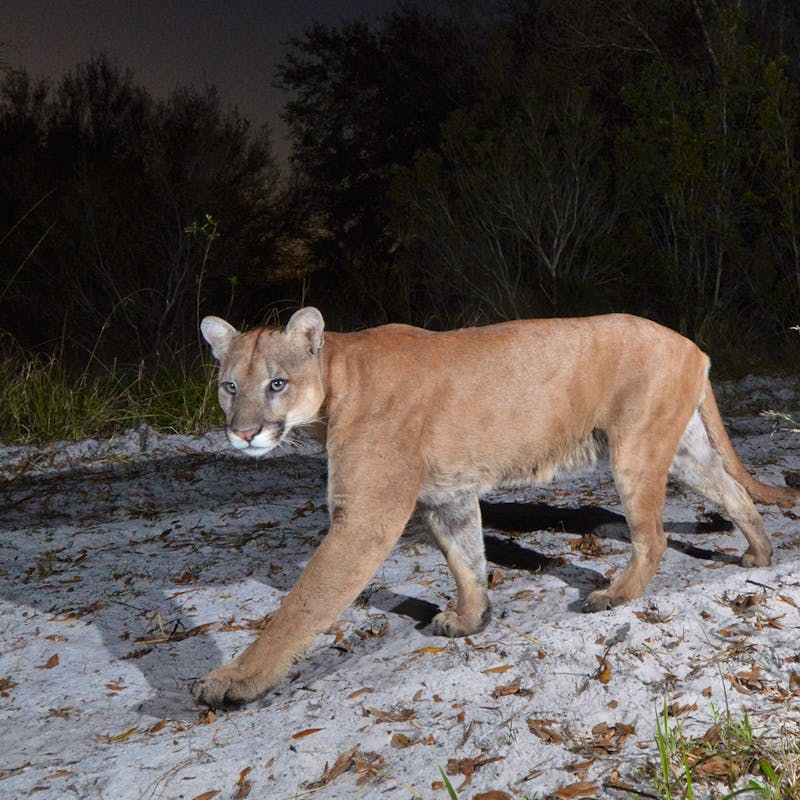TweetToday’s announcement is an unprecedented opportunity to protect a connected, rural landscape in southwest Florida that is threatened by urban sprawl and climate change. We look forward to working with the U.S. Fish and Wildlife Service and other partners to conserve vital habitats for the threatened species that call this place home while providing access to nature for local communities.”
The U.S. Fish and Wildlife Service (FWS) announced its intent to begin conservation planning efforts across a study area in southwest Florida. In cooperation with regional stakeholders, FWS will explore the possibility of establishing a new conservation area across a large, intact rural landscape essential to dozens of imperiled species. Conservation areas are units of the National Wildlife Refuge System, the country’s only public lands dedicated to conserving wildlife.
“Today’s announcement is an unprecedented opportunity to protect a connected, rural landscape in southwest Florida that is threatened by urban sprawl and climate change,” said Elizabeth Fleming, senior Florida representative at Defenders of Wildlife. “We look forward to working with the U.S. Fish and Wildlife Service and other partners to conserve vital habitats for the threatened species that call this place home while providing access to nature for local communities.”
Conservation areas are created through the purchase of conservation easements from willing sellers. Lands under conservation easements remain in private hands but are protected from development.
Decades of habitat assessments, population analyses and development trends form the basis for the proposed area that could ultimately protect as many as 74 federally and state-listed species on public and private lands connecting Florida National Wildlife Refuge northward to Everglades Headwaters National Wildlife Refuge and Conservation Area.
Southwest Florida is among the most rapidly growing parts of the U.S. with a high level of population growth and large-scale habitat loss from new development. Florida’s population is projected to roughly double from 2010 to 2070, putting immense development pressure on rural lands and wildlife. Conservation easements purchased within the proposed conservation area would permanently protect working lands and critical linkages for wildlife connecting northward across the Caloosahatchee River into south-central Florida.
In October 2021, Defenders launched a campaign to expand the National Wildlife Refuge System, with ecologically sensitive areas in southwest Florida as a top priority. Florida panthers, manatees, bonneted bats, wood storks, crested caracaras, gopher tortoises and eastern indigo snakes are among the listed species found within the proposed conservation area.
Background:
- The National Wildlife Refuge System is the only system of public lands and waters devoted to wildlife. Nearly one-third of all U.S.-listed species are found on (or depend on) at least 444 of the 568 wildlife refuges.
- In 2016, breeding female panthers were documented north of the Caloosahatchee River for the first time in decades, signaling a long-awaited milestone for recovery efforts.
- The FWS southwest Florida study area anchors the southern end of the Florida Wildlife Corridor, a statewide network of connected landscapes and watersheds encompassing natural, rural and ranch lands extending from the Everglades to Georgia and Alabama.
For over 75 years, Defenders of Wildlife has remained dedicated to protecting all native animals and plants in their natural communities. With a nationwide network of nearly 2.1 million members and supporters, Defenders of Wildlife is a leading advocate for innovative solutions to safeguard our wildlife for generations to come. To learn more, please visit https://defenders.org/newsroom or follow us on X @Defenders.
Media Contact
News

Defenders Receives Advocacy Organization of the Year Award





